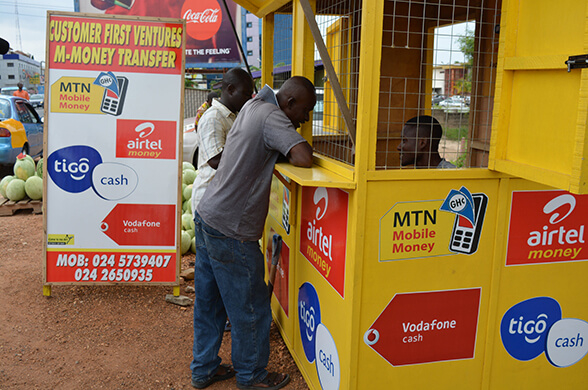The Deputy Minister for Finance, Abena Osei-Asare, has revealed that more that 40% of mobile money transactions in Ghana are below GH¢100 per day.
According to her, data from government show that more than 40% of mobile money transactions were below a GH¢100 per day – a challenge that compelled government to waive taxes for this group.
“The majority of mobile money subscribers are low-income earners; so clearly, you see that government did some research and realized that we should exempt the GH¢100 and below,” she stressed.
The Deputy-Finance Minister made these known at the official opening of a four-day sensitization programme for staff of the Information Service Department (ISD) across Ghana about the electronic transaction levy (E-levy)
The programme, which is under the auspices of the Ministry of Finance, aims at empowering the ISD to embark a public education campaign to sensitize Ghanaians on the importance of the E-levy. “Government feels that if you earn more, you should be in a position to put in more to help develop our nation,” Abena Osei Asare added.
The Deputy-Finance Minister, who doubles as MP for Atewa East in the Eastern Region, told the ISD staff that customers of commercial establishments who make payments to purchase goods and services do not have to change their method of making payments, as there is no E-levy charge on this as well if the establishments are registered with GRA for VAT or Income Tax.
Educating ISD staff in the rationale behind the E-levy, she pointed out that per records of the Ghana Revenue Authority (GRA), about 20% of the Ghanaian population are eligible to pay taxes but the number is less – emphasizing that many Ghanaians do not pay income tax and so government is hoping that, with introduction of the E-levy, it will help the country widen the tax net to include a larger portion of the population who are eligible to pay taxes.
She further mentioned another reason for introducing the E-Levy was to support revenue mobilization to tackle challenges of high unemployment, and address inadequate physical and digital infrastructure such as roads, hospital and schools.
On the state of digital transactions in Ghana, the Deputy-Minister mentioned that Ghana has experienced phenomenal growth in the last five years, with a steady growth in the number of registered Mobile Money accounts.
She disclosed that according to a Bank of Ghana (BoG) report, the total transaction value report of mobile money interoperability exceeded GH¢1trillion in March 2021 – up from approximately GH¢155million in 2017.
This development she said, is an indication that there are a lot of business in the mobile transaction space, adding that the individuals and businesses from online business accept payment electronically rather than physical cash.
The Deputy-Minister for Information, Fatimatu Abubakar, on her part stated that the event aims at empowering the ISD to embark on a public education campaign to sensitize Ghanaians on the E-levy’s importance.
The engagement, according to her, is part of many gatherings that have already been held across Ghana – adding that government held town hall meetings and channeled the same into policy formulation, where various misconceptions surrounding the E-levy were brought to bear and subsequently addressed.







